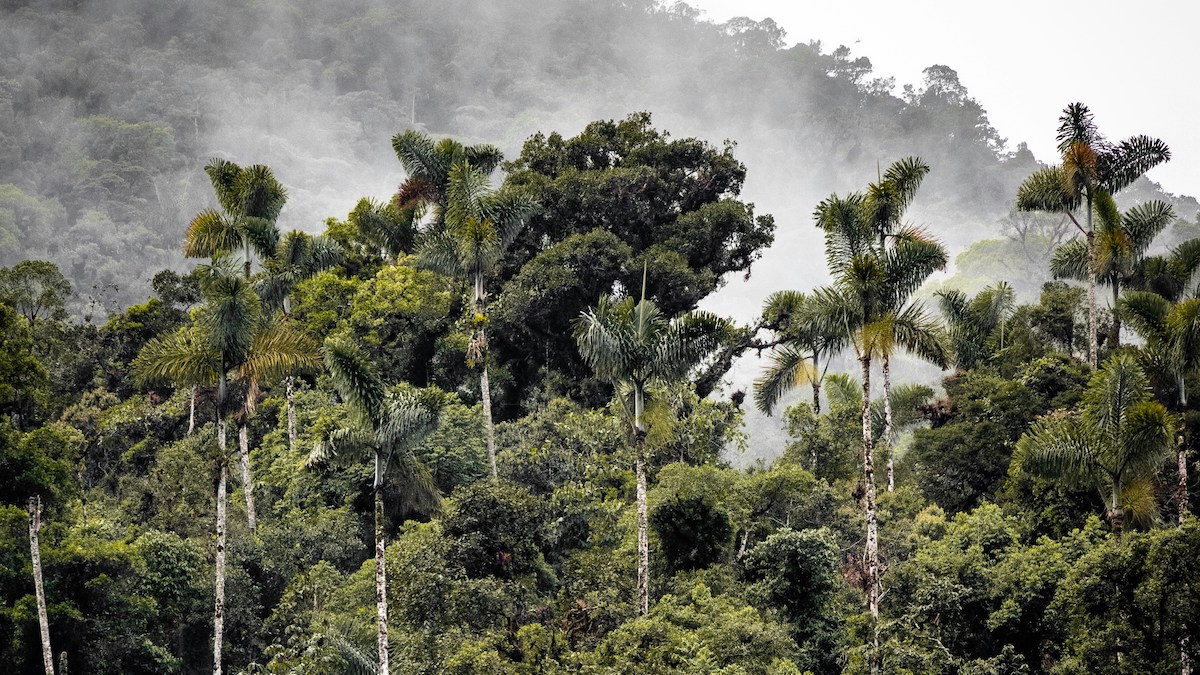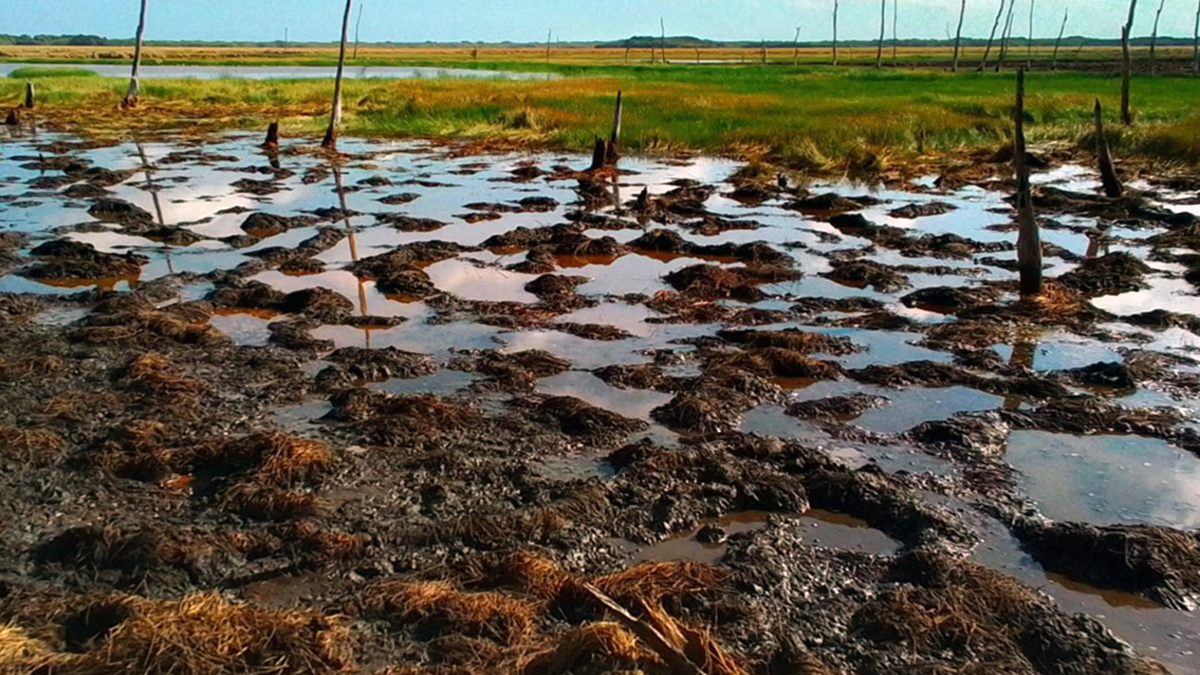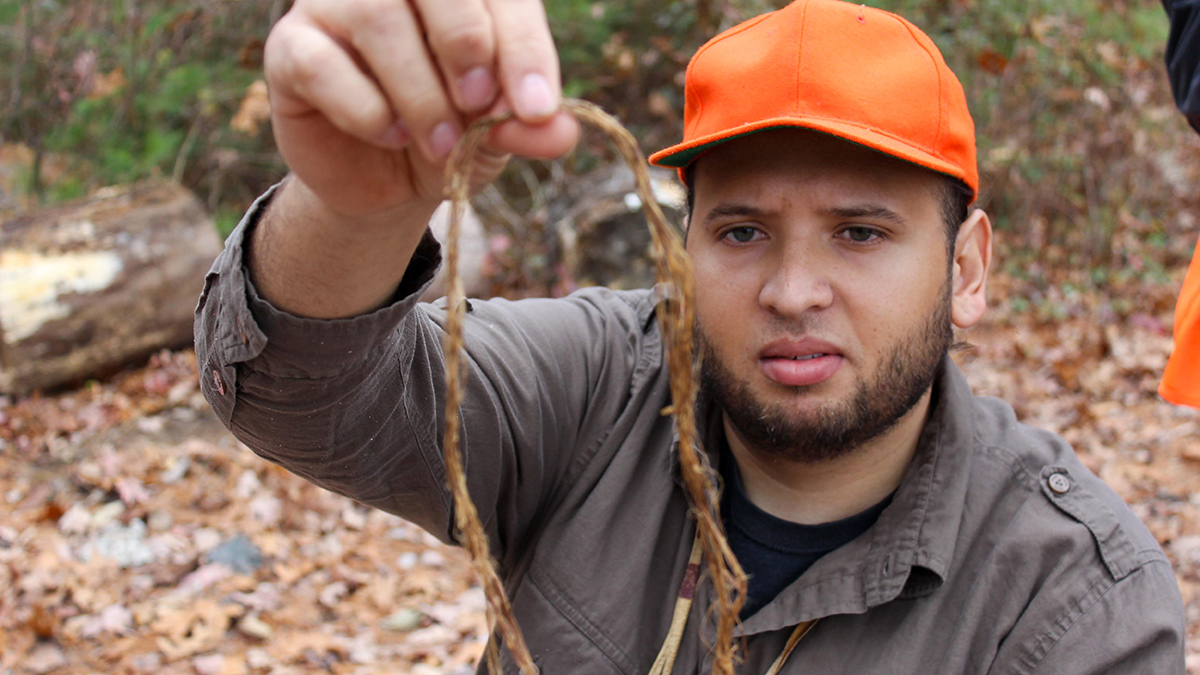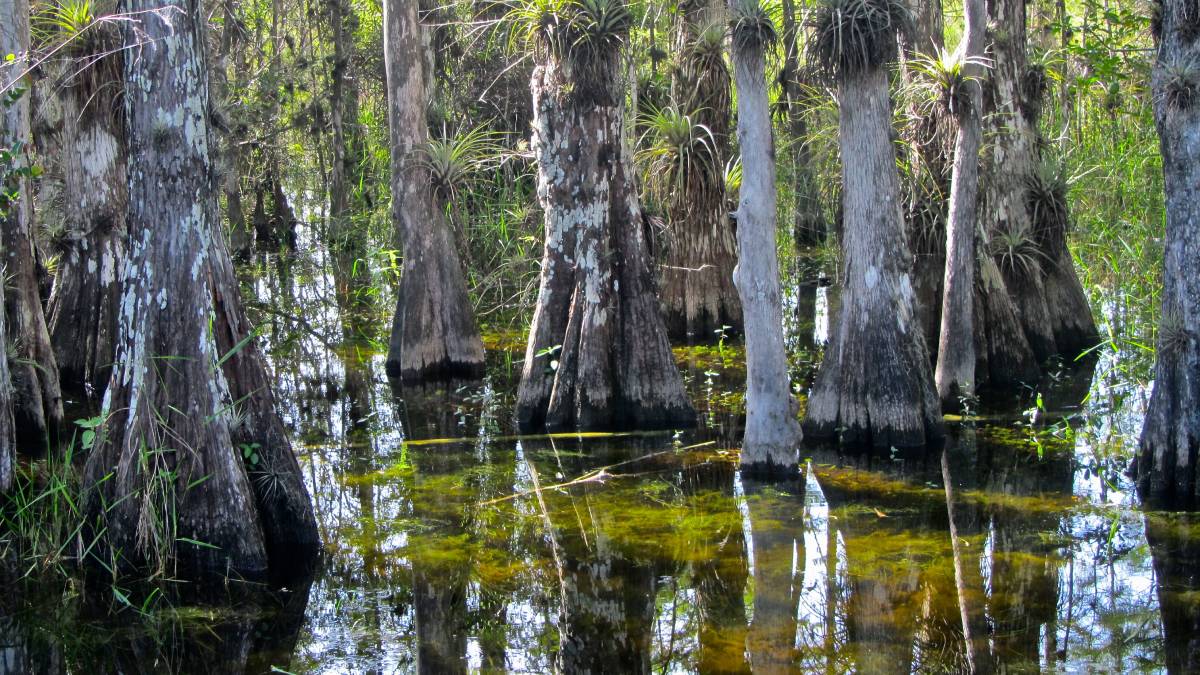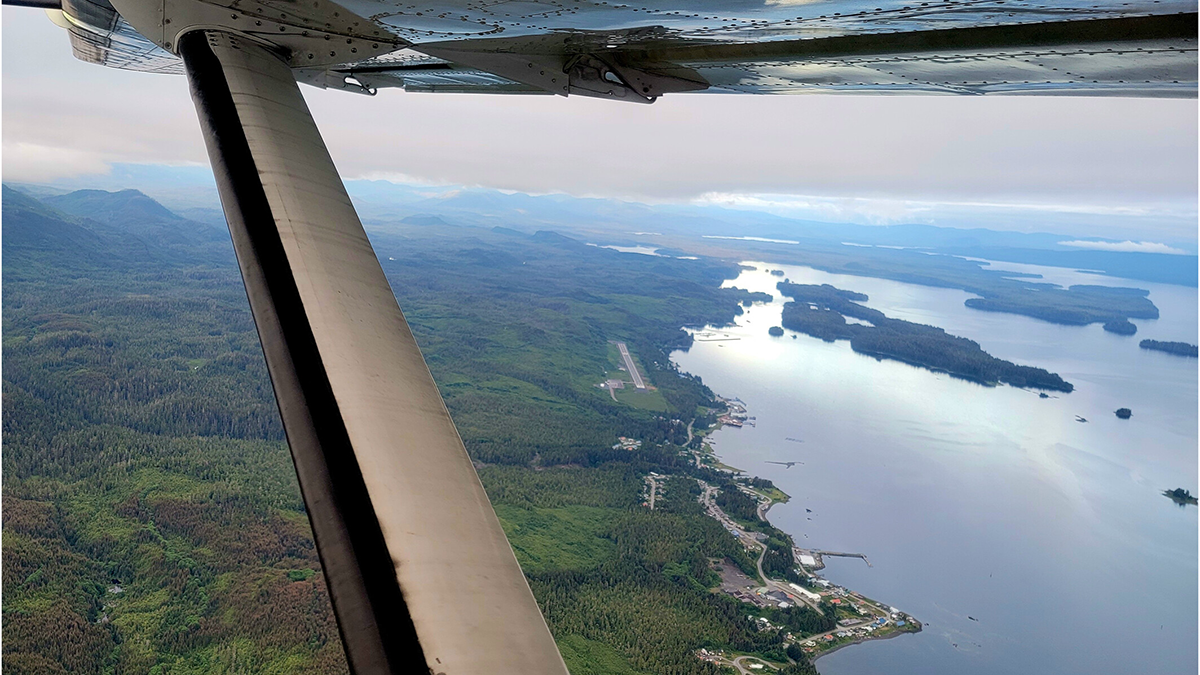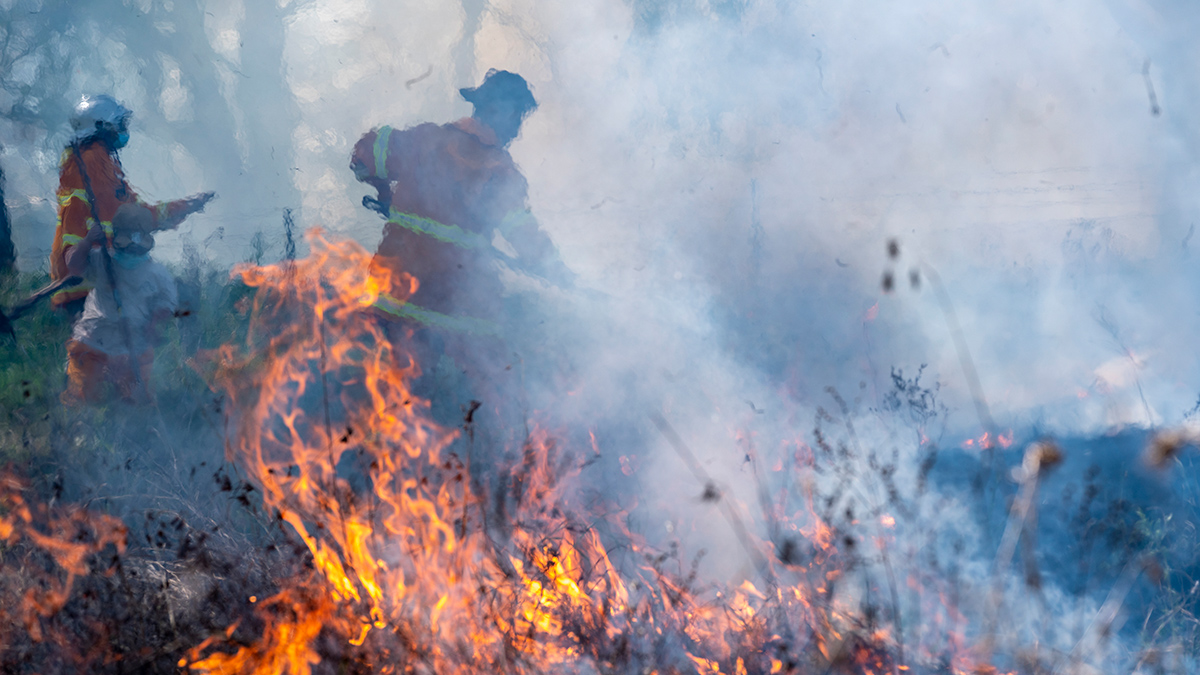An analysis of 20 years of health data in eight Amazonian countries, published today in Communications Earth and Environment, shows that protecting Indigenous-managed forests may help reduce various kinds of disease, including fire-related respiratory diseases and illnesses spread by animals.
Indigenous Peoples & Traditional Knowledges
Where the Pigs and Buffalo Roam, the Wetlands They do Bemoan
A novel fenced enclosure study demonstrates the heavy toll that invasive ungulates have on greenhouse gas emissions from coastal wetlands on Indigenous lands in Australia.
Cassius Spears Jr.: Conserving the Living Soil
This soil scientist braids the Traditional Ecological Knowledge of his ancestors with modern soil conservation practices to help Rhode Island’s farmers and land stewards.
Environmental Groups Sue to Block Everglades Detention Facility
The groups assert that the facility will undermine decades’ of work and billions of dollars spent restoring and protecting the Everglades’ delicate ecosystem.
Work with Indigenous Communities Advances Community Science
Drawing from climate co-production work with the community of Kake in Alaska, two new studies offer insights for doing community science—especially, but not only, with Indigenous communities.
Teaming Up to Tailor Climate Education for Indigenous Communities
A new college-level curriculum, cocreated by Indigenous and Western researchers, could help Indigenous communities adapt to climate change on the Colorado Plateau.
¿Seis mil años de quema controlada arruinados?
Al alterar prácticas milenarias de gestión del fuego, la colonización creó una situación mortal en los bosques australianos, pero aún no se sabe hasta qué punto se extendió la “quema cultural”.
Six Thousand Years of Controlled Burning, Up in Smoke?
By disrupting millennia-old fire management practices, colonization created a deadly situation in Australian forests, but the jury is out on just how widespread “cultural burning” was.
A Major Miner Problem
Economic geology, mining, and mineral resources programs are working to meet the needs of an industry that’s struggling to find employees—at a time when some say they’re needed more than ever.
O Legado Rico em Nutrientes nas Terras Pretas da Amazônia
Os solos férteis de terra preta foram criados através de séculos de uso da terra cuidadosamente administrado. Os cientistas estão colhendo referências desses solos para remover o carbono e melhorar o solo para a agricultura.

